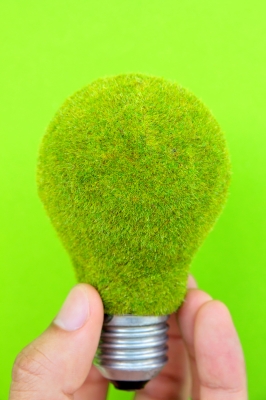 Electricity is a great thing, but pretty much all of us are guilty of using it inefficiently. Inefficiency translated to wasted money and no one likes wasting money (even though we do it all the time). It is also really bad for the environment. This isn’t something we probably think about too much because we can’t directly see this effect. There is no nasty smoke or fumes being emitted from our electrical sockets. All that stuff is taking place at the power plant far, far away, however. The average home probably pollutes the environment more than the average car. Cutting back on electricity use is really not that complicated—the issue is raising awareness of the simple strategies to a point where they register with us and we actually do these things. Maybe if we had some idea of the significant effects of seemingly small actions, and how it translates to more money in our wallet, we would be more motivated to act. Here are some tips to help you cut back on electricity use. Digest the information and commit to action.
Electricity is a great thing, but pretty much all of us are guilty of using it inefficiently. Inefficiency translated to wasted money and no one likes wasting money (even though we do it all the time). It is also really bad for the environment. This isn’t something we probably think about too much because we can’t directly see this effect. There is no nasty smoke or fumes being emitted from our electrical sockets. All that stuff is taking place at the power plant far, far away, however. The average home probably pollutes the environment more than the average car. Cutting back on electricity use is really not that complicated—the issue is raising awareness of the simple strategies to a point where they register with us and we actually do these things. Maybe if we had some idea of the significant effects of seemingly small actions, and how it translates to more money in our wallet, we would be more motivated to act. Here are some tips to help you cut back on electricity use. Digest the information and commit to action.
Heating
Heating is a huge energy suck; sure, we cannot live in the freezing cold, but there are plenty of ways to keep warm without using more heat than necessary. Many houses have central heating, meaning it is pumping into every room, whether you are in it or not. If you only regularly use certain rooms of your house and never others, like the two extra bedrooms, heating panels or space heaters can slash your bill significantly. Radiant heaters also heat the room more uniformly, for a more comfortable experience. If most of your house is in use throughout the day, this method will actually cost more.
Keep heat from escaping through weather stripping and upgrading your insulation if necessary. When you are not home, turn the heat off—it is not true that it costs more money to re-heat your home rather than always leaving it on.
Adopting strategies that make you more comfortable, so you can lower the heat are important as well. Putting your ceiling fan on low pushes warmer air down from the ceiling without producing a wind-chill effect. Something as simple as wearing socks and slippers makes a difference since we lose a lot of body heat through our feet. Personal heating pads can also help—they are very popular in Japan where electricity costs are through the roof.
Lighting
We need lighting, but this is one area where we are particularly wasteful. Do you know that you can use 70 to 90 percent less right off the bat by simply installing LED or CFL lights rather than traditional incandescent bulbs? They were all the rage when they were invented in 1880, but are horribly inefficient. If you have trouble turning off lights when you leave a room, motion sensors can take care of that problem for you. If you have areas where the lights must always be on, use the lowest wattage possible to save electricity use by 80 percent or more.
The Washer and Dryer
Changing how you do laundry is one of the easiest ways to reduce electricity use in the home. 90 percent of energy used to power a washer goes to simply heating the water. I now wash clothing in cold water, and it gets just as clean. In fact, many detergents are formulated to use with cold water. Did you know that washing clothing in hot water every day for a year wastes as much energy as leaving the fridge door open 24 hours a day for a year? If you can’t give up your hot water, at the very least, use cold for the rinse cycle. Hot water will not lead to cleaner clothes.
Consider getting a top-loading washer. Not only do they use 63 percent less water, they get more water out of your clothing, which means less time in the dryer. They also keep your clothes in better shape—instead of jerking them around with an agitator, they clean with a gentle tumble.
As for your dryer, clean the lint tray regularly—a dirty screen makes the dryer use up to 30 percent more energy. Fabric softeners cause a waxy build up on the screen to regularly clean it with water and a toothbrush.
Kelli Cooper is a freelance writer who enjoys blogging about all things green living; she recommends the high quality bulbs from LightingEver.co.uk for the home and office.













